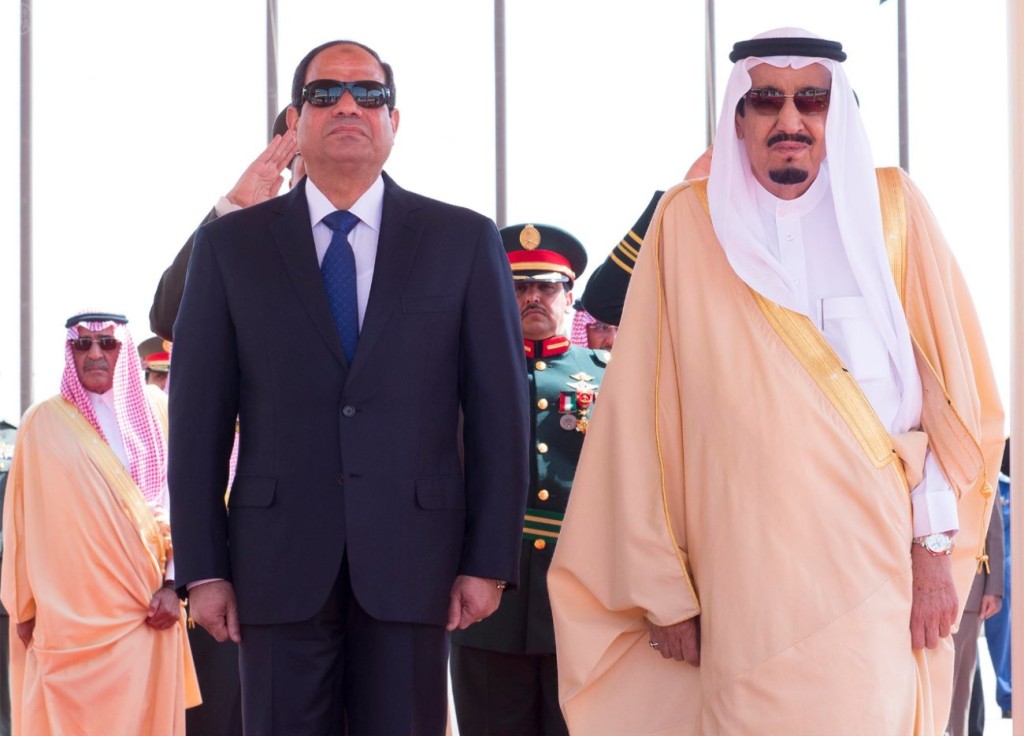Cairo- Minister of International Cooperation, Sahar Nasr, said that Saudi-Egyptian strategic bilateral affairs have advanced beyond political understanding and support. Establishing development and economic programs which would benefit both countries lies ahead.
Nasr pointed out that The Custodian of the Two Holy Mosques King Salman’s visit to Egypt will provide a substantial foundation for future comprehensive cooperation.
In an interview with Asharq Al-Awsat newspaper Nasr said that, during the King’s visit, both the Kingdom of Saudi Arabia and Egypt will endorse several high-caliber agreements involving different sectors.
Minister Nasr is the Egyptian party coordinator for the “Egyptian-Saudi coordination council”. She has led the Egypt representative delegation to the fifth council meeting in Riyadh last March.
Nasr revealed that the council’s meetings will resume frequently over the upcoming period, as a part of following through on previously signed memorandums of understanding, especially the King Salman bin Abdulaziz program for Sinai Peninsula development.
Denying any threats of aid cessation due to criticism on the country’s human rights’ state-of-affairs, the Egyptian minister confirmed that international
institutions and western countries have displayed willingness on supporting Egypt’s economy.
Nasr brought up a $27-billion funding gap suffered by the Egyptian economy, which is currently being attempted to be compensated via attracting foreign investment. The gap is also being filled with arranged loans and international grants; however, the minister underlined that the Egyptian economic crisis lies within internal liabilities and not foreign debts.
Following is a selected set of questions answered by the Egyptian Minister of International Cooperation, Sahar Nasr:
* How do you receive the news on the Custodian of the Two Holy Mosques King Salman bin Abdulaziz’s visit to Egypt, in terms of significance and expected outcome, in light of the special bilateral Egyptian-Saudi affairs?
Being the Custodian of the Two Holy Mosques King Salman’s first visit after assuming rule of Saudi Arabia, his visit is considered at a minimum to signify historical value, and comes in context of completion for the exceptional relationship shared between his Highness and Egyptian President Abdel Fattah el-Sisi.
Egyptian-Saudi affairs were always strategic and broaching all phases; political, economic and social.
However, throughout recent years, bilateral relationships have significantly grown under President el-Sisi’s endearment for reinforcing them. The exceptional relationship and political understanding shared by the two countries has
converted into development programs and investing projects, which benefit both Saudi Arabia and Egypt and embodies their strong ties.
Ever since President el-Sisi’s rise to power, the relationship has been engaged in three principal domains, other than its political dimension; which are economic, cultural and academic exchange.
* Five meetings have been held since the Egyptian-Saudi coordination council’s launch, what is the outcome of those meetings?
The council’s meetings are ongoing and will resume frequently over the upcoming period, as a part of follow up on previously signed memorandums of understanding, especially the King Salman bin Abdulaziz program for Sinai Peninsula development, which is estimated to be funded with 1.5 billion U.S. dollars.
The meetings have also led to an agreement on funding petroleum byproducts import between The Saudi Fund for Development, Egyptian General Petroleum Corporation ( EGPC ) and Aramco, Saudi Arabian Oil Company.
A memorandum encouraging Saudi investment in Egypt was also endorsed, in addition to another one on funding natural gas derivatives import with a quarter million U.S. dollars
* Does King Salman’s presence at the signing of those agreements have a specific undertone?
Indeed, King Salman’s presence will give a substantial supporting push for such understandings. We will present the Saudi delegation with many projects for investment, to be signed and put into effect based on Saudi Arabia’s true desire for cooperation with Egypt.
